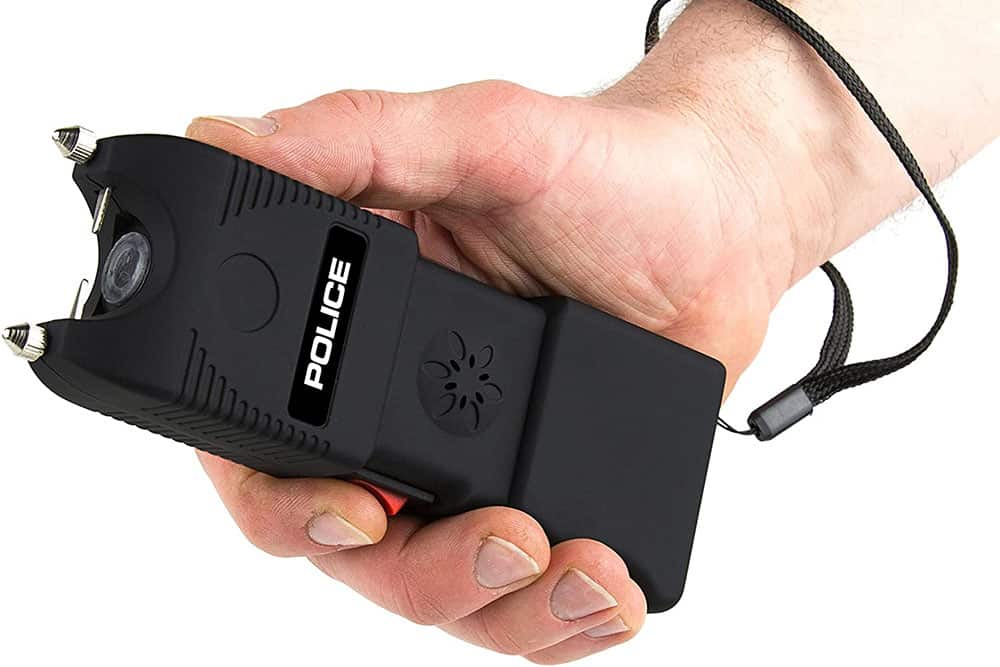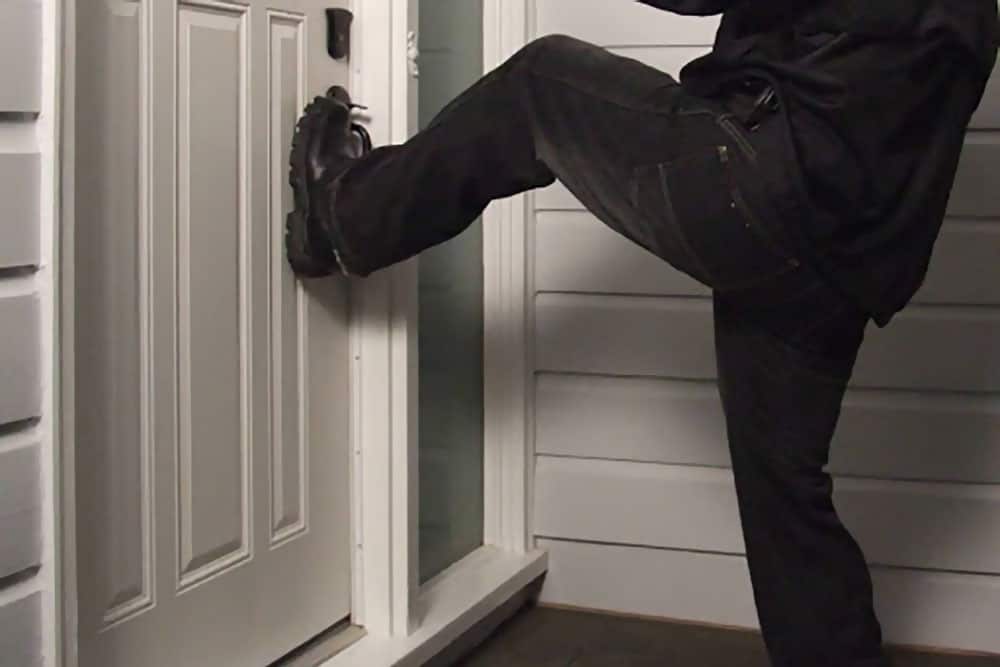In an increasingly uncertain world, home alarm systems are a necessity. Fortunately, the best are affordable, reliable, easy to install and can be synced with your smartphone to provide round the clock protection wherever you are.
Lots of companies you would not expect produce home alarm systems these days, including Google and Amazon. We looked at all the top contenders and determined that the following are the best home alarm systems of 2021.
1. Protect America
The Protect America home security system combines smart and practical features to create a single, robust home security scheme at a reasonable price. For less than $20 a month you get 24/7 monitoring, smartphone integration, wireless components that are almost impossible to disable and much more.
Answer your front door from the other side of the world, see what the security cameras are seeing on your smartphone screen, or turn on the lights remotely before you get home. If someone intrudes, the monitoring center alerts you to verify it’s not a false alarm before calling the police. A great overall system at a great price.
2. ADT Pulse
ADT were pioneers in private security systems for business and home. Today, they continue to offer an array of effective security systems at reasonable prices, including their ADT Pulse system. The Pulse system provides comprehensive coverage of your ADT home security apparatus, including the ability to monitor security video in real time, and control various smart home gadgets as well, all from a single smartphone interface.
The Pulse system is extremely flexible. You can choose which components you want and which of your existing smart home features you wish to integrate. Customer support is rock-solid, though it’s unlikely you’ll need them much, as the hardware and software are first rate and very reliable. ADT Pulse is not cheap. But it is without a doubt pro-level security.
3. SimpliSafe
SimpliSafe offers a gateway home alarm system that you can install and try out. If you like what you see the system can be expanded over time. The system is discreet, wireless and features battery backup in case the power goes out. The detection algorithm is another big plus because it’s designed to recognize pets, so they’re not constantly tripping false alarms.
One thing we really appreciate is that the company does not engage in high pressure sales techniques. They’ll make suggestions, sure, but they let you pick the level of security you think it appropriate. If you want to upgrade later you’ll find they’re always willing to help. If you want to leave things the way they are, they won’t try and pressure you into an upgrade.
4. Ring Alarm
The Ring Alarm system is a multifaceted system that is remarkably easy to install and remarkably affordable. For less than $200 the basic kit provides everything you need to secure a small home or apartment from intruders. Further additions to the system are reasonably priced and you can pick and choose those components to suit your needs.
The Ring Alarm system is wireless, so no one is going to disable it. You can add everything from video doorbells, to smart outdoor lighting, and security cameras and sync the whole thing to your smartphone. They also offer 24/7 professional monitoring which is a good idea if you are away from home a lot. The company is owned by Amazon, so you know they have plenty of resources behind them and aren’t disappearing overnight.
5. Blue by ADT
ADT makes a host of attractive, effective home alarm systems, including our #2 choice above and this one: the ‘Blue by ADT’ system. Blue is a very sophisticated system, but not so tech-heavy that it’s beyond the ability of the average person to install or understand it. And you will have to install it, or find someone to do it for you, because this is a DIY system.
With Blue by ADT you can choose their basic starter system for $159, or you can design your own system by selecting components on their website. There’s a plethora of cameras, motion sensors, lights and other components that will enable you to achieve exactly the level of security you’re after. (Just keep in mind that more components equals higher price.) Should you wish, 24/7 monitoring is also available.
6. Frontpoint
The Frontpoint home alarm system has received a lot of positive press and has a lot of satisfied customers. Probably because installation is so easy, the quality is so high, and there is no need to commit to a long-term monitoring contract. In fact, you can choose to monitor the system yourself if you wish via their outstanding smartphone app.
While setup costs are relatively high, there is no installation fee (because you’re doing it yourself), and you have the option of foregoing monitoring. But beyond cost, the system itself is simple and very reliable, with common sense features like battery backup. It’s high tech the way we want it to be: unobtrusive and effective.
7. Abode
Abode is an indirect offshoot of ADT. It was started by a former ADT executive who raised startup capital via a Kickstarter campaign. A year or so later the Abode home alarm/security system hit the market to rave reviews. The latest version of Abode is more feature rich than ever, but still manages to be affordable and easy to work with.
Abode is one of the easiest home alarm systems to install. Everything is clearly explained in simple, easy to understand terms in the instruction manual that comes with the kit. You can choose a simple, self-monitored system. Or you can pony up a few extra ducats and enjoy their round the clock monitoring.
8. Link Interactive
Link Interactive is not as well-known as some of the other companies on our list, but there is no denying the quality of their home security systems. Components of the system are super easy to install. All you do is peel the guard off the back and stick the control panel or camera or whatever to the wall. No drilling or special tools required. And because it’s wireless, there’s no running wires everywhere.
The Link Interactive system is flexible, and can be tailored to match your specific requirements. It can also be synced with numerous other smart home devices, including the company’s own stove top sensor that detects if you’ve left a burner on, and pool cover sensor that alerts you if someone has messed with the pool cover. All in all a very comprehensive, useful system.
9. Brinks Home Security
Every day Brinks armored cars provide safe passage for many millions of dollars in cash. So it’s not such a stretch to imagine them being able to come up with a way to protect your home. And they have. And it’s outstanding. The Brinks Home Security system offers you three levels of protection starting at the very reasonable $199.
Whether you just want some motion sensors placed around the house, or are intent on a full-scale comprehensive security system, Brinks can provide it. The hardware is all first-rate, technological integration is reliable and trouble free, and 24/7 monitoring is more affordable than we thought it would be. The only downside is that the monitoring requires a 36 month commitment.
10. Vivant
The last of our best home alarm systems is from Vivant. This is another lesser known company, but another one that gets all the basics right, and won’t cost you an arm and a leg. You’ll have to buy all the equipment piece by piece, but they offer professional installation for those who are unable or just uninterested in doing it themselves. Overall the system is effective, easy to use and adapts to any property.
If you purchase enough equipment you’ll get a free video doorbell and free installation. A total savings of several hundred dollars. If there’s a downside to Vivant it’s that functionality is limited if you choose self monitoring. And those big savings are only available if you purchase at least $599 of equipment.
FAQs
What Is a Home Alarm System?
A home alarm system – also referred to as a ‘home security system’ – is a collection of linked sensors placed around a property that alert you and/or a monitoring center if something is amiss. Many, (not all), home alarm systems include security cameras that are placed at strategic places throughout the home as well.
Today’s best home alarm systems are easy to install, affordable, low-maintenance systems that are often wireless and can be synced directly to your smartphone. Some include audible alarms. Others can be synced to a variety of other ‘smart’ items in your home, including the thermostat and the garage door opener.
What are the Benefits of a Home Alarm System?
Home alarm systems ensure the safety of your loved ones. No property is impervious (1). But a quality home alarm system can greatly reduce the odds that your home will fall victim to an intruder. Guys who specialize in breaking and entering (B&E) normally case a house for some time before deciding whether to break in. If they see security cameras, digital keypads or other evidence of a home security system, they are likely to decide the house simply isn’t worth the risk.
Home alarm systems serve an important purpose in uncertain times. If 2020 has proven anything it’s that there is no substitute for preparedness. Things can change in a matter of days from rosy and optimistic, to dark and uncertain. Even as we slowly emerge from the events of 2020 great uncertainty remains. And in uncertain times, crime tends to spike (2). A home alarm system can help ensure that you and your loved ones do not become unfortunate additions to the roll call of crime victims.
A home alarm system may reduce your insurance costs. Homeowner’s insurance is a major expense. Anything you can do to lower your monthly payment is a good thing. A home alarm system is one of the best ways to earn a break on those often punishing premiums (3). A break that could be as much as 10% or more.
Home alarm systems are affordable. While we’re on the subject of finances it should be noted that, not only will a home security system lower your insurance premiums, but the system itself is typically very affordable. In fact, a robust home alarm system will usually cost less than a guard dog. Sure, many a thief will be deterred by loud, aggressive barking. But then, just as many will be deterred by the presence of security cameras. And the security cameras don’t have to be fed or taken to the vet.
Home alarm systems protect your valuables too. While protecting the health and wellbeing of yourself and your loved ones is paramount, a home alarm system will also provide robust protection for valuable items inside the house. That includes artwork, jewelry, expensive Oriental rugs, family heirlooms and more.
Home alarm systems are important if you have elderly relatives living with you. A growing number of people have elderly parents, grandparents or other relatives living with them (4). Should the family go out and the older person decide to stay behind they could be vulnerable. How? If a B&E guy is casing the house and sees everyone leave except an elderly relative, he could well decide that that person can be easily overcome. If, however, he approaches the house and realizes he’s on camera he will likely retreat and try another house.
Home alarm systems can be synced with your smartphone. With alarm systems of the past, if someone tried to jar a door or window on your home an alarm might go off, but the thief might still have time to grab things and exit before a neighbor called the police. In this case window bars or door reinforcements can be helpful as well. (If a neighbor bothered to call the police.) Modern home alarm systems can be synced with your smartphone and provide you real-time information about what is going on. You, or the monitoring center, can call the police immediately.
Home alarm systems let you keep an eye on your teens. Parents love their kids at every age, but there is no doubt teenagers can be a handful. Maybe most troubling is their tendency to invite others, including other young people they may barely know, into the house while you’re out. A home alarm system with security cameras can tell you exactly who has come and gone, in case something is damaged or goes missing.
A home alarm system protects your pets. Humans are not the only ones in danger during a home intrusion (5). Armed intruders often shoot pets. Sometimes because they feel threatened, and sometimes just out of spite. A home alarm system that repels potential intruders not only safeguards family, friends, jewelry and heirlooms, but pets too.
Home alarm systems can increase your fire preparedness. In 2018 (the most recent year for which statistics are available) more than 3,600 Americans died in house fires (6). And while that number is down from the late 1970s when almost 8,000 people died annually from house fires, it’s still an appalling number. Many home alarm systems include smoke detectors that can be programmed to send an alert to your smartphone in the event they detect smoke or fire in the house.
A home alarm system can be tailored to your home. The best home alarm systems are not one-size-fits-all products. They can be tailored to the specifics of your home to provide the highest possible degree of protection. Whether your home is 1 or 3 floors, 4 rooms or 14 (or more), and the property 1/4 acre or multi-acre, the home alarm system can be configured to provide optimal coverage.
A home alarm system can be installed in a rental home. Not everyone owns the home they live in. But just because you rent your home does not mean you have to accept being vulnerable to break-ins. Most US landlords will allow tenants to install a home security system, as long as doing so does not require making physical changes to the property. If you have to drill a hole here or there to accommodate cameras or other features just make sure to ask beforehand to avoid any controversies.
Home alarm systems can be synced with other smart features. The internet of things (7) is comprised of millions of appliances and other objects worldwide that are synced with apps installed on smartphones, PCs and laptops. That includes many home security systems. The security system itself can often be synced with other objects in your home, including smart thermostats, the garage door opener and more.
Are Home Alarm Systems Expensive?
Like just about every other product or service, home alarm systems range in price from the cheap to the expensive. The good news is that, over time, the cost of things like high-quality digital cameras and other elements of a home security system has come down. Meaning the average cost of the alarm system has come down in price as well. Where a lot of alarm companies make their real money is in monthly monitoring fees. Even so, those fees do not have to be prohibitive, and often amount to just a couple of dollars a day.
Which is Better: A Monitored or Unmonitored System?
There are a couple of reasons why people choose an unmonitored system. The first is financial. Even a couple of dollars a day for monitoring can add up to more than $700 per year. And in uncertain economic times every dollar counts. Another reason is privacy. That is, some folks don’t like the idea that a person in some far off office somewhere knows who comes and goes from their house. They also don’t like the idea that the same person can spy on them by watching the security camera feeds. But that fear is largely unfounded, since most monitoring centers have no access to images produced by the security cameras. Unless, of course, your monitoring plan specifically grants them that access.
Can I Install a Home Alarm System Myself?
In most cases yes, you can install the home alarm system yourself. As long as you have some do-it-yourself capability it should be a pretty straightforward job. There is also plenty of help available from credible online sources (8). However, if you think you’ll need some help installing the system the company may recommend someone in your area to install it for you. That will likely cost $100 or so. Maybe more, depending on the size of your house and the complexity of the system.
Will I Have to Sign a Long-Term Contract?
In some cases a home alarm system company will require you to sign a monitoring contract. But mandatory contracts are the exception, not the rule. Most of the systems profiled on our list are self-installed systems as we just discussed. These systems can be either self-monitored or professionally monitored. It’s up to you. In most cases, that self-monitoring is done by syncing the alarm system to an app on your smartphone.
Will an Alarm System Work Without a Smartphone?
You can certainly get a home alarm system that does not need to be (or simply cannot be) synced to your smartphone. The smartphone syncing is a convenience that enhances the effectiveness of the system. That’s all. If you don’t have a smartphone or you simply don’t want to sync your home alarm system to your phone that’s up to you. If you still want the system monitored, but just don’t want to do so yourself, there are plenty of systems that offer professional off-site monitoring for a monthly fee.
Can I Install a Home Alarm System in a Rental Property?
In many cases, yes. People are often surprised that landlords are agreeable to having a security system installed (9). But it’s a smart choice for everyone when you think about it. The renter enjoys a safer, more secure experience and may get a break on their renters insurance. For the owner, anything that prevents B&E guys from damaging the property is a good thing. A home alarm system may also prevent a breakin that might have spawned a lawsuit against the owner.
The Bottom Line
In an increasingly uncertain world, home alarm systems are more than a luxury, they’re a necessity. Fortunately, many outstanding home security systems are available at very reasonable prices. They are easy to install and can be monitored either through your smartphone, or by an outside monitoring center, or both.
A home alarm system will make your home safer for yourself and your loved ones (including your pets), protect your valuables, and likely reduce your monthly homeowners insurance premiums. Use the information in the above guide to determine which of the best home alarms systems of 2021 is right for you.











